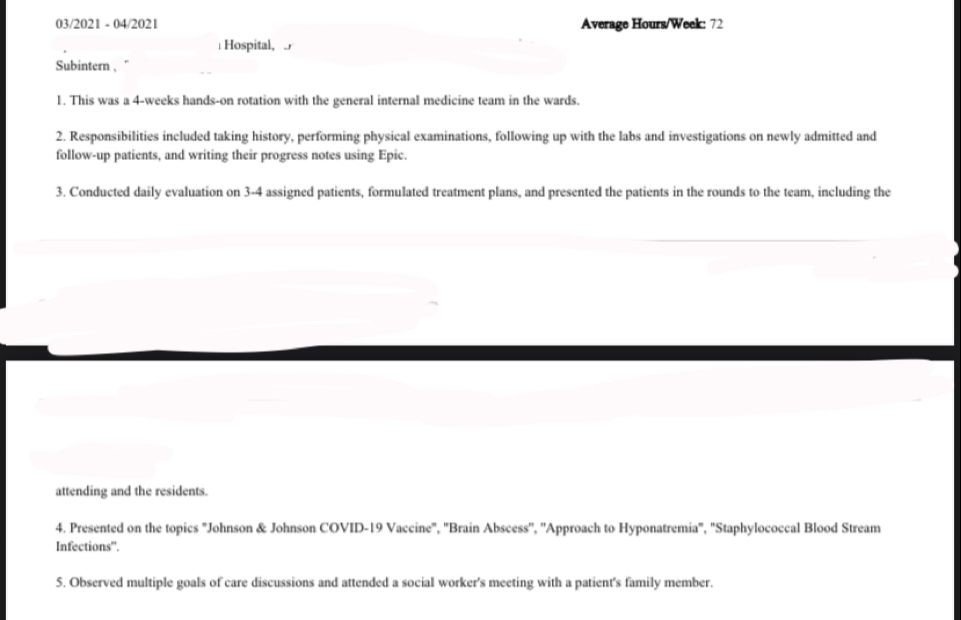Tips for the ERAS Work and Volunteer Experiences Sections
Written by Maya Soufan, MD
After all the hard work in undergraduate and medical school, it is now the time to showcase all your efforts to the residency programs you'll apply. But first, let's have the work and volunteering experiences definitions clarified.
Work experience: any involvement that involved a monetary reward (your sub-internships/ US rotations can go here if you are an IMG applicant)
Volunteer experience: any involvement done with no monetary reward in return.
Below are tips on how to write the work and volunteering experiences of your residency application (ERAS CV):
1. Quality over quantity
Look at your current most updated CV and see your accomplishments. Ask yourself which one will be valuable for the programs to learn about you. It's better to have six valuable experiences in your work/volunteer section than twenty experiences where it looks like you're just filling up space on the residency application.
2. Honesty is the best policy
As simple as this may sound, be honest about everything you have done. Do not add details that have not happened. Be sure that everything you wrote is accurate. You will be asked about your experiences in the interview.
3. Remember your audience
The people reading your ERAS application are mainly programs from mostly that are not in your medical school. Therefore, write about your experience in a formal, objective tone by giving details about the aim and organization you were involved in, followed by your responsibilities. Furthermore, avoid using shortcuts of words unless it was entirely written the first time.
4. No need to reflect on what those experiences have taught you. Leave the reflections to the personal statement.
For example, do not mention on your ERAS CV that "this experience has taught me patience and teamwork…". All these can be mentioned in the personal statement. Make sure the ERAS CV is objective with no subjective points.
5. Use numbers
Quantify your experience whenever you can so that programs can see how much work you have done (example from an excerpt of my ERAS CV below)
6. Format
There have been several debates about using bullet points/dashes/numbers when writing about an experience or writing a whole paragraph. I have read several ERAS applications of matched candidates that use either option. However, in my opinion, I prefer the experience to be bullet points/dashes/numbers as it's more user-friendly and readable.
7. Use passive tone
Write your experience without using "I."
For example: "Helped mentor 200 students throughout the past two years."
Rather than: " I mentored 250 students the past two years."
8. Ask your medical school mentors or residents who have already matched to review your CV.
It is crucial to have your residency application reviewed by as many people as possible.
9. Review the application for any grammar and spelling mistakes.
This is vital as spelling and grammar mistakes can give an impression that the applicant does not care about the application.
Below is an example of one of my work and volunteering experiences on my residency application. Notice how it was written in an objective tone, passive voice, and numbers were used when applicable.
Work Experience Example:
Volunteer Experience Example:



